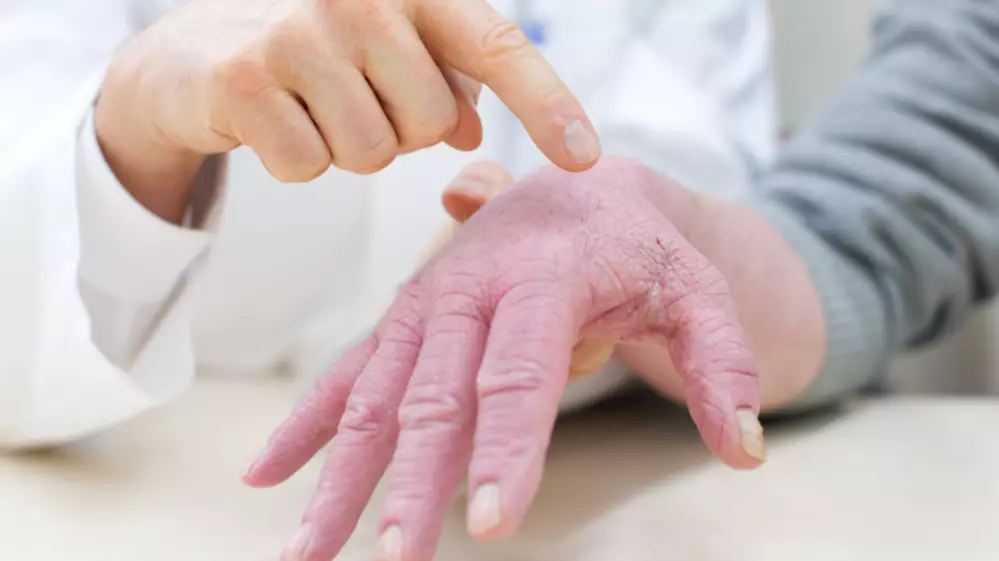
As the weather grows colder, it suddenly feels like EVERYONE around you is ill - spluttering into tissues while chugging as much Lemsip and Berocca as they physically can.
But as well as the general sniffles, the arrival of autumn can also wreak havoc on your body in many other ways.
Eczema, for instance, always seems to flare-up in the colder months, giving sufferers sleepless nights and a great deal of discomfort.
Advert
However, according to a doctor, with eczema - a common skin condition that causes areas of your skin to become dry, itchy, red, sore, cracked and inflamed - there's much more to the problem than the weather being cold and dry.
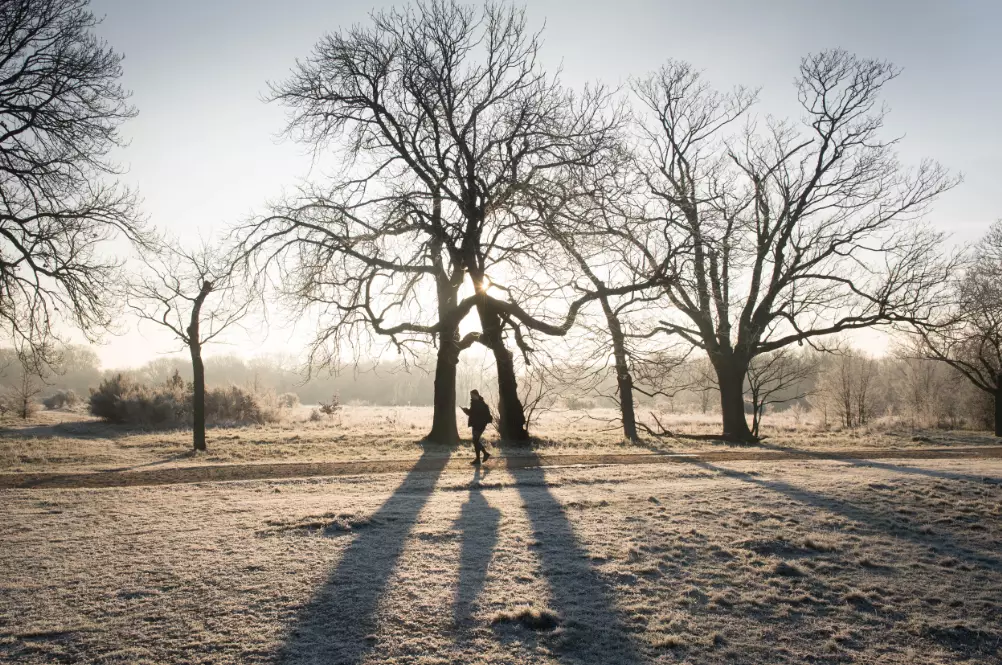
Speaking to LADbible, Dr Simran Deo explained that there are various reasons why this time of year is most often associated with an eczema flare-up - and that there are also several different types of the condition to bear in mind.
Deo, a GP with special interest in Dermatology at UK-based online doctor Zava, said: "People may find that their flare-ups are caused by factors such as cigarette smoke, allergens and irritants such as soaps, hand sanitisers, detergents, perfumes and cleaning materials, and even stress.
Advert
"Dry skin is also a common cause of flare-ups, so many people find their eczema is worse in the winter.
"This is due to a combination of factors: the air is less humid in winter, meaning the water in your skin evaporates more quickly - and windy weather makes this worse.
"Central heating also dries out the air at home and work, and long hot showers and baths, as well as frequent hand washing, strip the skin of its natural oils."
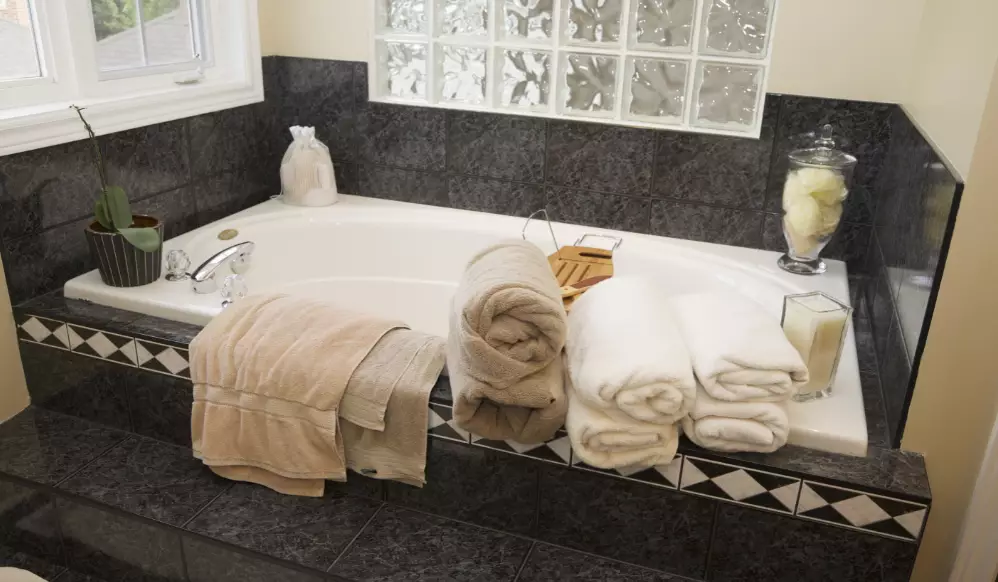
Deo said it's important to try and identify the triggers of your flare-ups (even if that means a quick trip to see a doctor or nurse), as these could be anything from using a certain soap or perfume, coming into contact with pets, cigarette smoke or chlorine in pools.
Advert
Thankfully, if you do notice that your eczema does get worse during the winter, there are several things you can try.
Deo advised: "Moisturise regularly - after going outside, bathing, or washing your hands. The type of moisturising cream that is best for you will depend on your particular case, but most people use an emollient cream which coats the skin in a protective layer to keep the moisture in.
"Protect your skin from dry winter air and wind by covering up. Many people find their hands suffer most in winter so protect them with gloves whenever you go out.
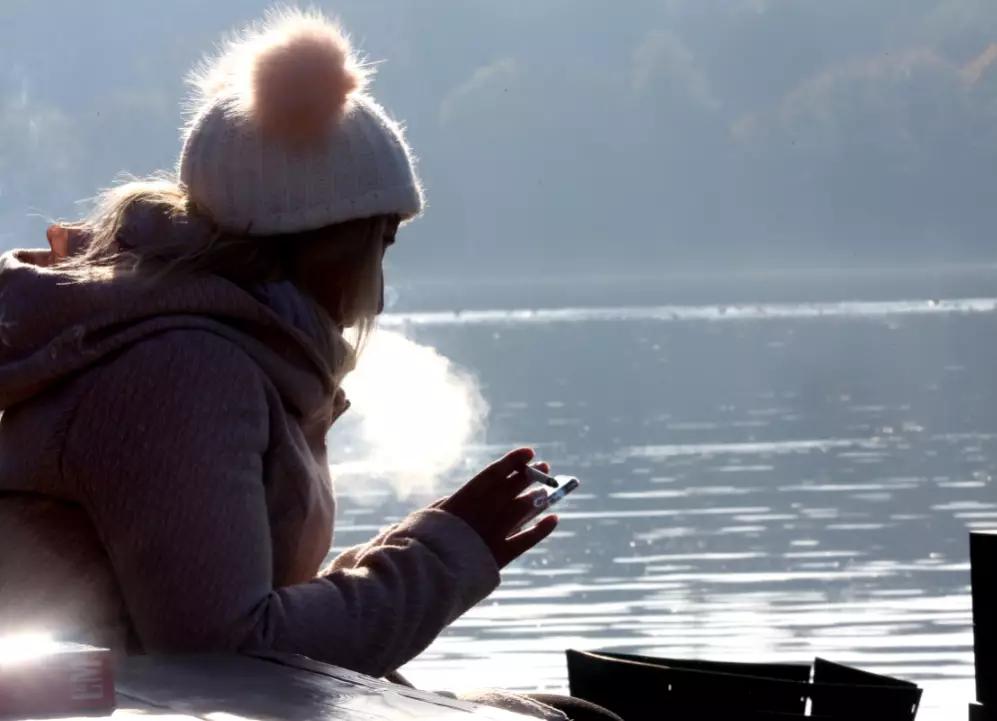
"If you find your hands are flaring up even though you're moisturising regularly, keep them covered up as much as possible, especially when outside or doing the washing up. You might want to apply an emollient cream at night and wear gloves over the top.
Advert
"Take short baths or showers in warm rather than hot water. If normal soap makes your eczema worse you can use a soap-substitute such as aqueous cream, which is similar to an emollient cream. And pat yourself dry rather with a towel rather than rubbing your skin hard.
"Stay hydrated - we tend not to feel as thirsty when the weather is colder, but the dry air takes the moisture out of our skin, leaving it more vulnerable to flare-ups."
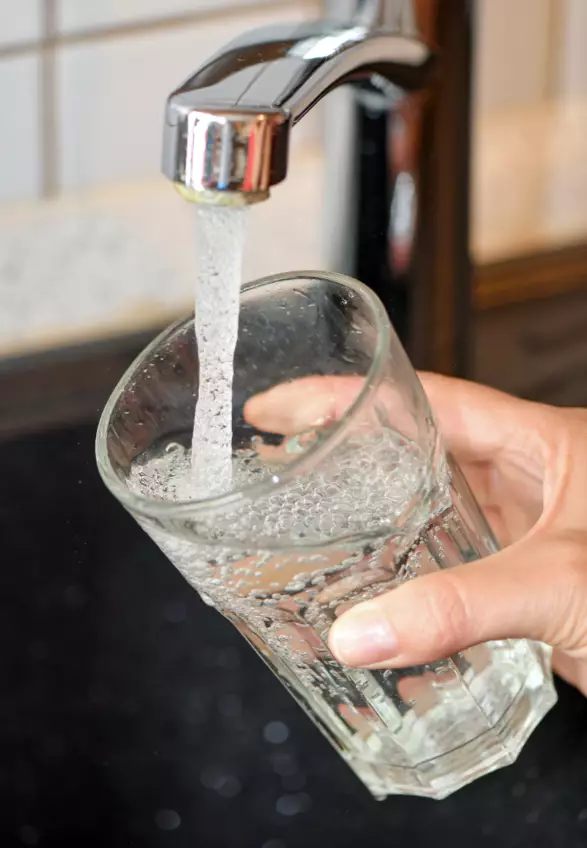
If all this fails, even taking an antihistamine can help, as eczema can become more itchy due to something called the 'itch-scratch cycle' - which is when histamine (a chemical in the cells) is released in the skin on scratching, and causes the skin to feel itchy.
Advert
Deo said there are also habits and products we can avoid, which may help.
She said: "Scratchy fibres such as wool can irritate already dry skin. Try wearing a cotton or silk layer next to the skin, which is more breathable.
"If you smoke, try to cut down. Cigarette smoke is an irritant to many people with eczema. You might also choose to make some other lifestyle changes, such as playing sports or exercising indoors rather than outdoors, or avoiding chlorinated pools.
"Avoid heavily perfumed soaps, lotions and deodorants which can act as irritants.
"Try to avoid stress - when we are stressed our bodies produce more cortisol, which can suppress the activity of our immune system leading to a stronger inflammatory response in the skin, making flare-ups more likely."
Featured Image Credit: PATopics: Weather, World News, News, Health